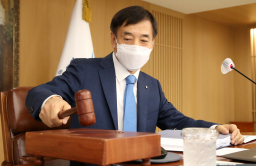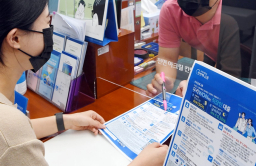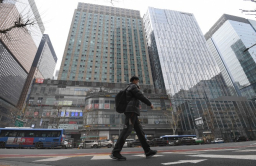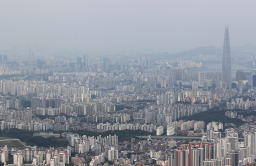-
KOSPI 2577.27 -2.21 -0.09%
-
KOSDAQ 722.52 -7.07 -0.97%
-
KOSPI200 341.49 +0.02 +0.01%
-
USD/KRW 1396 -2.00 0.14%
Korea private debt growth at record high of $98 bn in Q2
Economy
Korea private debt growth at record high of $98 bn in Q2
Household borrowing surges as it takes 18.5 years to buy Seoul property without spending a penny
By
Oct 12, 2021 (Gmt+09:00)
1
Min read
News+
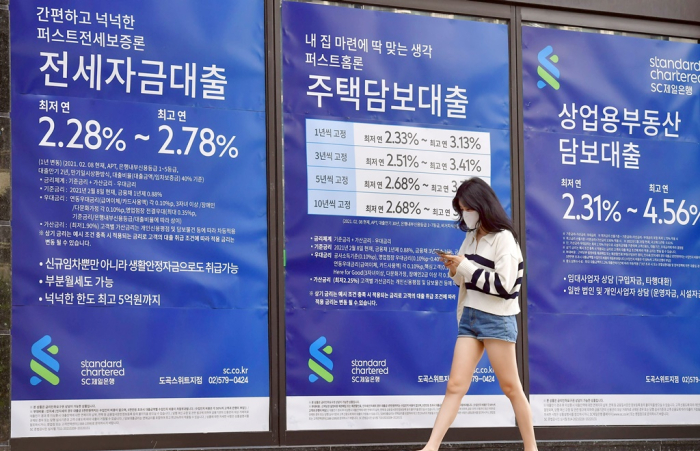
South Korea’s private sector debt jumped near $100 billion in the April-June period, a record high of quarterly growth, amid an overheating property market, indicating the central bank may need to raise interest rates further in a near term.
Private sector debt including both of household and corporate sectors rose 117.1 trillion won ($97.6 billion) to 4,343.3 trillion won as of the end-second quarter from the previous three months, according to a Bank of Korea data analysis by Choo Kyungho, an opposition People Power Party lawmaker and former vice finance minister, on Oct. 11.
Household borrowing totaled 2,106.8 trillion won, up 55.4 trillion won, a notch lower than a 10-year high of 57.5 trillion won in the fourth quarter of 2020.
Such increases came as the country’s property prices kept rising, analysts said.
The housing price to income ratio (PIR) in Seoul was 18.5 times in the second quarter, the highest since 2004 when the data was first compiled, according to Kookmin Bank. That means one can buy property in the country’s capital only if they save their income over 18.5 years without spending a penny.
The Bank of Korea held interest rates steady on Oct. 12, taking a breather after its first hike in near three years in August, as a resurgence in COVID-19 is expected to hurt a recovery in Asia’s fourth largest economy.
The central bank was still predicted to raise borrowing costs in coming months in a bid to stem the soaring household debt, the overheating property market and accelerating inflation, analysts said.
Write to Ik-hwan Kim at lovepen@hankyung.com
Jongwoo Cheon edited this article.
More To Read
-
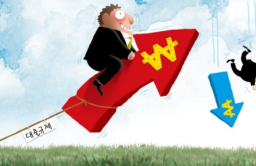 Retail investorsSeoul may curb margin loans to rein in household debt
Retail investorsSeoul may curb margin loans to rein in household debtSep 23, 2021 (Gmt+09:00)
-
Aug 26, 2021 (Gmt+09:00)
-
Aug 22, 2021 (Gmt+09:00)
-
Aug 11, 2021 (Gmt+09:00)
-
Jul 23, 2021 (Gmt+09:00)


